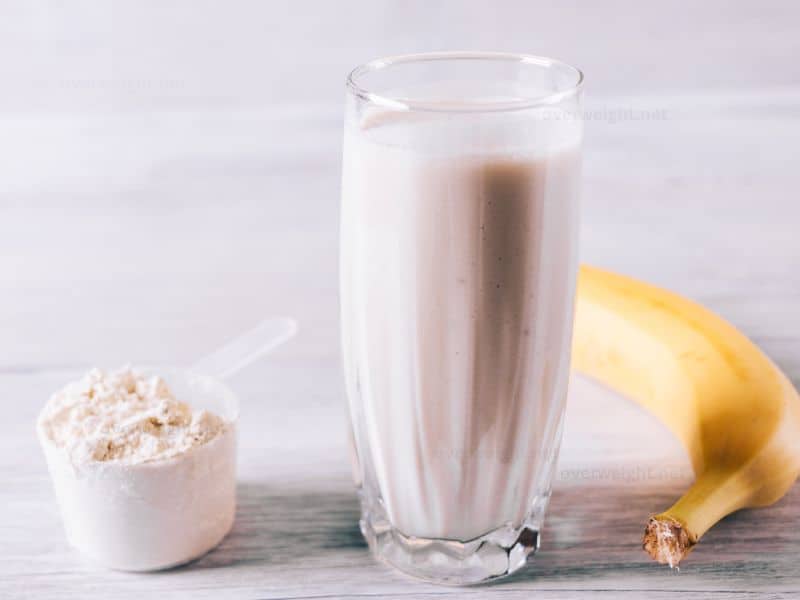
by Editor | Jun 9, 2011 | Weight Loss
We know that the key to permanent and effective weight loss is to speed up our body’s metabolism.
Metabolism simply means the speed at which our body utilizes and burns through food.
A fast metabolism means that your body processes and utilizes the nutrients which it needs and then eliminates those it doesn’t…
There are primarily two ways to naturally speed up your body’s metabolism.
The first is through resistance training, and lifting weights. Lean muscle tissue is a very metabolically active tissue, it requires a lot of energy to maintain.
The body gets this energy from burning calories. So the more lean muscle you have, the faster your metabolism becomes and the more calories that you will burn at rest.
The second way to effectively speed up your body’s metabolism is by eating small, well-balanced, nutritious meals or snacks every three to four hours.
This alone can drastically improve the efficiency of your body’s metabolism.
Now, for those of us with busy, often hectic lives, eating every three to four hours can be challenging, if not impossible.
What are the chances of eating something healthy and nutritious every two to three hours?
Unless you have a lot of time to prepare and package meals or hire your own personal chef to cook for you, this can be a daunting task.
Well, now there is a solution.
Meal replacements.
Meal replacements are probably the most valuable and underrated supplement on the market.
People are always looking for the magic solution to weight loss by buying some drink or pill that promises miraculous results.
We gain weight and body fat by having poor eating habits, so the only way to undo the damage is to reverse the cycle by developing good eating habits.
Meal replacements make this possible.
Meal replacements are pre-packaged powdered drink mixes that you mix with water, milk, or juice and then drink in the place of a meal.
They are convenient, inexpensive, and most taste pretty good.
For optimum fat-burning and muscle-building results, we need to consume a high-protein, moderate-carb, low-fat meal about every three to four hours.
This is approximately five to six meals per day. So, replace two or three of your whole food meals with meal replacements and you will drastically start cutting out unneeded calories, calories that can add up and, if not burned off, be stored as body fat.
Meal replacements provide a perfect, compact meal in a packet that is high in protein, low in fat (some have no fat) low in carbohydrates, and contain a wide array of vitamins and minerals.
They are low in sugar and cholesterol. They are very nutrient dense and can be mixed easily and conveniently.
In order to get the same benefits from whole food as some of the high-quality meal replacements, you would have to put together a large meal like a chicken breast (protein) a potato for some carbs, and a salad for the vitamins six times a day.
Why bother when you can just rip open a meal replacement packet and toss it into a cup with some water or skim milk? Presto!
Instant nutrition.
Check the ingredients. Stick with meal replacements that use a combination of whey, milk, and egg proteins as the first ingredient.
Most meal replacements, if taken with water, offer at least 40 grams of protein with minimal fat. Most are under 300 calories, chock full of vitamins and minerals, and taste rather pleasant.
Many people I have spoken to over the years attribute meal replacements being one of the biggest reasons why they we able to lose weight.
They are able to get vitamin-rich, high-protein, moderate-carb meals for less than 300 calories. All of this for about 2 dollars. You cannot even buy a Happy Meal for less than $2.00 dollars and Happy Meals are loaded with fat!
About the Author
Shawn LeBrun, Augusta, ME U.S.A.
Shawn LeBrun is one of the internet’s most published fitness and weight loss coaches. Visit his site to see how he can make this the year you achieve your best body ever!
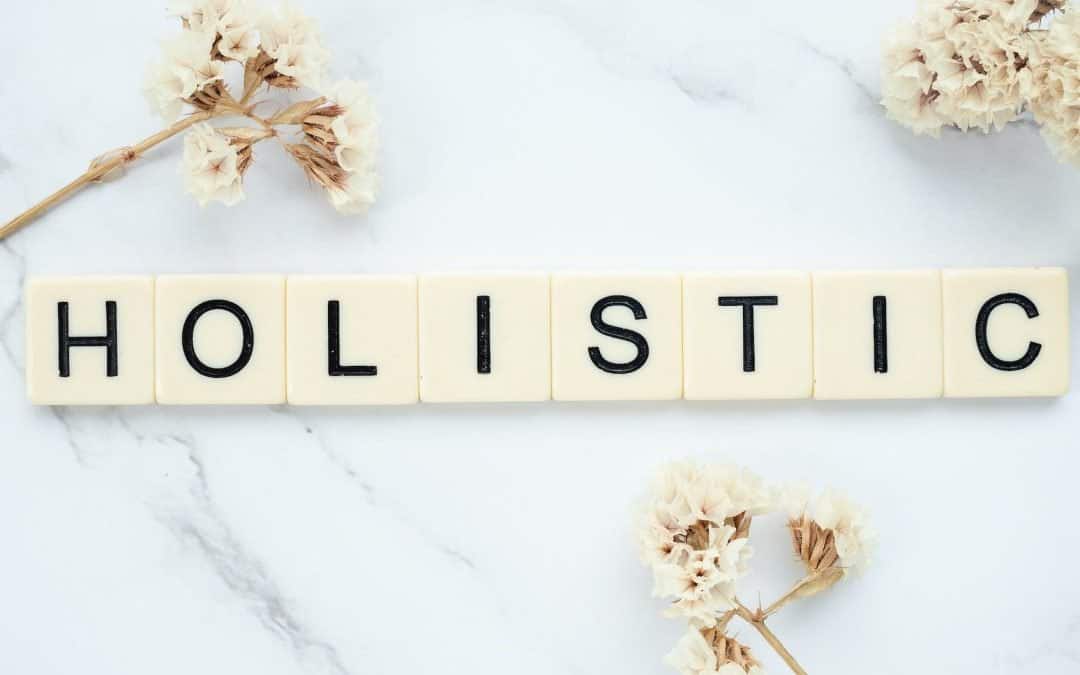
by Editor | Jun 9, 2011 | Weight Loss
As a person with a long history of dieting and failing, I can tell you that diets don’t work. The reason is simple. They don’t consider the fact that we are human beings with complex needs and desires, as well as an inner wisdom that can guide us to know what we really need…
The Holistic Approach to Eating includes the whole person – with physical, emotional, mental, and spiritual needs. Its unique value is that it creates lasting results because it gives you an opportunity to meet all of your needs in an appropriate way. After over 20 years of dieting, I was finally able to achieve and maintain my ideal weight permanently using this approach.
It’s interesting to ask people with weight problems why they eat. There are usually a lot of reasons and hunger is generally towards the bottom of the list. Holistically, this is seen as an imbalance, where they are trying to fill emotional, mental, and even spiritual needs with food, often torturing the body as a result.
If you have a problem with weight and can see that this is true for you, the following tips can provide a way for you to begin to sort this out and bring yourself into balance. You can learn more about what your needs are and find appropriate ways to fill them so that you will only be trying to fill the needs of your body with food.
1. Love and nurture yourself regardless of what you weigh.
2. Connect with your body’s inner wisdom.
3. Eat when you are hungry and stop before you feel too full.
4. Don’t eat when you are not hungry.
5. Get to know your reasons for eating.
6. Eliminate self-judgment and the possibility of failure.
7. Eat what you want to eat.
8. Do not sneak food.
9. Don’t use your scale to “weigh” your success.
10. Don’t let other people control what you eat.
In addition, some people may actually want you to stay heavy. For example, a person who comes from a family of people who are generally overweight may find that the family members want him or her to stay heavy to maintain a sense of belonging.
Or a husband may want his wife to stay heavy to keep other men away from her. It can be helpful to imagine how you would feel with the people you care about if you achieved your ideal weight and to understand how this influences your eating habits.
This holistic approach also builds in future success. This approach has worked well for others and is the basis for my book and a weight-loss program called “The Holistic Approach to Eating”.
We all know that life continues to bring new challenges. When this happens, you may temporarily lose your balance and begin to gain weight. But you also know that you will have the tools you need to deal with it. By re-examining your needs and finding appropriate ways to fill them, you can quickly bring yourself back into balance and maintain your ideal weight for life.
Jane Mountrose is a Life Coach and author of “The Holistic Approach to Eating” book and weight-loss program. For more valuable personal growth ideas and resources visit http://www.gettingthru.org, where you can also subscribe to Free monthly email newsletters. Or to subscribe email to mailto:lnews@gettingthru.org

by Editor | Jun 9, 2011 | Weight Loss
People have free will, as we all know, and that means that tough issues like weight loss can become very confusing. Thousands of books and videos on the subject give more advice than we could ever handle, but the real tools you need are inside of you…
The little things that you do throughout the day, the way you feel about things and the way you see yourself all determine your weight. The following questionnaire will help you point out your strengths and weaknesses, possibly shedding some light on your lifestyle. Whether you’re trying to lose weight or maintain your current weight, behavior modification is vital.
Answer each of the questions to the right “true” or “false” honestly. Wherever you answer “false,” you may have a weakness that’s holding you back in your quest for weight management. Remember to be completely honest with yourself.
- In general, I have a positive outlook. You will get nowhere if you don’t. If you’re a “the cup is half empty” person, you probably don’t realize it. Do you like most of the people you encounter? Do you usually go to bed at night with a positive feeling about your day? Do people turn to you when they’re down? If not, you may need to work on your attitude before you can go any further.
- I exercise at least three days a week. Your diet isn’t the only thing you should work on. Exercise changes your body, to make it more efficient at burning fat. If you don’t do this, the weight you lose will primarily be muscle and bone mass – things you can’t afford to lose. If you exercise, the weight you lose will be fat, and you’ll look and feel much better.
- I set goals that are realistic and attainable. Unfortunately, many companies bank on convincing consumers that losing ten pounds by Saturday can really happen. You can realistically lose a pound or two per week, on average. If you want to lose twenty pounds, give yourself three or four months, and monitor it weekly. Remember that the more gradual the weight loss is, the more likely it is to stay off.
- I follow a healthy, balanced diet. Don’t be fooled by the notion that avoiding one type of food or gorging on another will help you along the path to weight loss. Your diet should contain a bit of everything nutritious. About two-thirds of your diet should come from complex carbohydrates (whole grain bread, cereals, rice, fruits, and vegetables). You also need two or three servings each of calcium-rich dairy foods and protein items like meat, fish, and nuts.
- I set “mini-goals” to avoid being overwhelmed by large ones. To a child in September, the school year will never end, but holidays and birthdays along the way make it much easier to understand how long nine months is. In the same way, assign yourself weekly goals and assess your progress that way while working toward the biggie.
- I am always aware of how much fat and calories are in the food I eat. Keep in mind that each gram of fat has nine calories. Fat should make up no more than twenty percent of your total calories. This means that something with “only” 100 calories is fattening if it has eight grams of fat since 72 of its 100 calories comes from fat. Being mindful of this is a powerful tool.
- When I have a craving, I can handle it without eating. We all have our methods. Chewing gum can sometimes ward off cravings, as can drinking a glass of water. Some people even find that keeping their hands busy helps. If you feel compelled to quench that craving, you need a way to handle it.
- I reward myself for overcoming obstacles. You are much more advanced than Fido, but isn’t it easier to shape his behavior using biscuits as a reward? This works with people, too, and not just children. When you’ve lost that first five pounds, do something for yourself, even if it’s just saying, “Yeah, I’m good!”
- I don’t eat anything unnecessary. When you have pancakes, do you have to slap more butter on them before smothering them in maple syrup? Do you put mayonnaise or oil on your sandwiches? These things aren’t necessary. They’re just examples, but many people make simple foods very fattening by adding extras. Learn to eat things without all the frills and you’ll avoid a lot of unwanted fat and calories.
- I spend less than one hour per day watching television. It’s definitely addictive, especially when a great deal is going on in the world and the news is intriguing. Keeping busy is probably the best habit you can adopt, though. If you have three or four hours of television to watch every day, you’re depriving your body of activity.
- I rarely eat at restaurants or buffets. When I do, I’m careful. It’s a well-accepted fact that fat makes things taste better. Restaurants want their food to taste good, so they use a lot of fat. Even things that seem low in fat probably have plenty of it. A good example of this is fish served in a lemon-butter sauce. A good salad can be ruined by ranch dressing. It’s really better to plan your meals ahead of time and eat at home.
- I eat small amounts of food several times a day, instead of two or three big meals. Doing this gives your metabolism a big kick-start. When you eat a large meal, then fast for several hours, your body tends to hold onto the calories from that meal, in case it has to wait a long time for more nourishment. If you get your body accustomed to eating in smaller intervals, you burn calories much faster. This is a pretty neat little phenomenon.
- I serve myself reasonable portions. One good way to assure that you do this is by using a smaller plate than usual. The appetite is rather dependent on the mindset of the person eating. If you’re used to having huge portions of each item at dinner, you’ll want huge portions, no matter how hungry you are. Train yourself to be mentally satisfied with average-sized portions.
- I drink at least two liters of water every day. Water curbs cravings decreases bloating and water retention, and enhances your liver’s fat-burning capability. You should never allow yourself to get thirsty. Two liters of water isn’t that much. Just get into the habit of sipping it all day long, and soon, you won’t be able to live without it. Visit www.inch-aweigh.com/water.html for more info on drinking water for weight loss.
- I manage my stress productively (without using food). Many people eat when they encounter stress. They tend to look for “comfort foods” that remind them of a much easier, stress-free childhood, opting for ice cream, meatloaf, and cookies. If this is you, find other, less destructive ways to deal with stress. If you begin an exercise program, this will help tremendously.
- I eat slowly. Your body doesn’t realize that you’ve had enough to eat until several minutes after you’ve had it. If you eat too hastily, you’ll fill yourself up and possibly eat more on top of that. Studies have also indicated that the body is accustomed to an average number of chews per mouthful. If you chew your food more than usual, not only will you eat more slowly, but also you’ll trick your body into thinking it’s had more to eat.
- I recognize my faults and take responsibility for them. Some overeaters are like alcoholics, in that they don’t realize that they are abusing food. A woman might get into a fight with her husband, gorge on a half-gallon of ice cream, and then blame him for it. This is dangerous behavior. Don’t let anyone or anything distract you from your goals. If you do, you must recognize that you are the one at fault.
- I only eat at the table. Sitting on the sofa with munchies is a bad idea for those who want to lose weight because it encourages passive eating. When you confine yourself to the table for meals, you won’t be doing anything but eating, and therefore, you won’t eat quite as much.
- I don’t indulge myself in social affairs. This is terribly difficult for a lot of people. Stuffed mushrooms and *censored*tail wieners seem so small and harmless, but they contain more calories and fat than they should. Birthday cake is great, and a little piece probably won’t hurt you, but where do you draw the line? One key to weight management is learning (or forcing yourself) to control yourself in such a situation.
- I never eat anything within three hours of my bedtime. Your metabolism slows down at night, so if you go to bed with a full stomach, your body won’t deal with the calories as efficiently as it would during the day. If you’re used to munching on chips or sweets during prime time, you’re putting weight on yourself. After dinner, eat nothing else. Even if you think it will kill you.
- I have made a real commitment to achieving or maintaining a healthy weight. If you truly believe that you will lose weight, you will. Unfortunately, it’s hard for overweight people to do that. They often cannot picture themselves any thinner than they are. Even if you can’t picture it, commit yourself to it wholeheartedly. Recognize that your belief in yourself is the number one ingredient to leading a healthy, happy life.
Nobody can lose weight for you. No bars, shakes, or exercise gadgets can do it for you, either. Only you can determine what happens to your body. If you want to make an improvement, start today, just by knowing in your heart that you want to make an improvement. Go through this list once a week until you can answer “true” to everything. It’s not impossible.
If you’re committed, you’re there.
About the Author
Maia Appleby is a certified personal trainer and weight loss consultant at a fitness center in South Florida
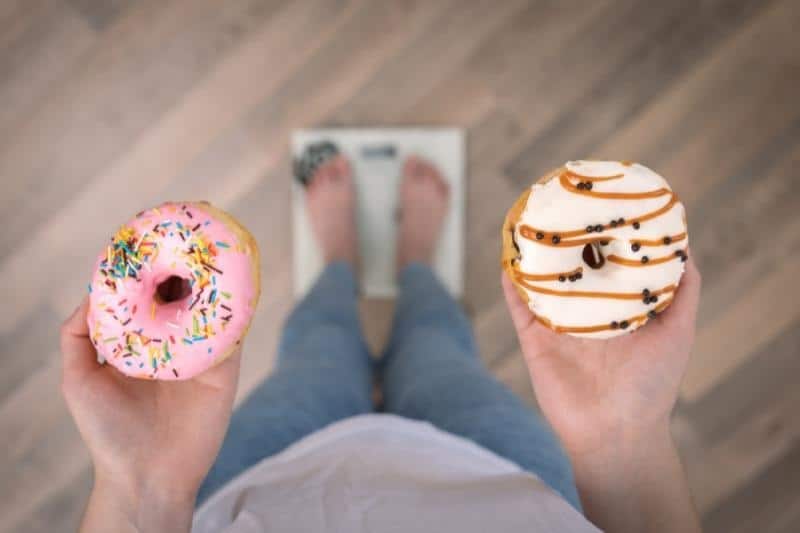
by Editor | Jun 9, 2011 | Motivation, Weight Loss
So you’ve determined you’re going to do something about your weight. But what? Being overweight is not, in itself, a behavior. You don’t get overweight. Being overweight is an outcome of many behaviors that add up to consuming more calories than you’re expending. (Yes, there’s a genetic component too, but you can’t change that.) …
The good thing is that this gives you lots of places to start moving toward your goal of losing weight. The challenge is sorting through them all and finding what will work best for you. So here’s the question: What are you most ready to change?
Behavioral researchers have identified five stages in behavior change:
1. Precontemplation: You’re not even considering it. No way you’re going to give up your pizza and beer. Gym-going is not for you. Why walk when you can ride?
2. Contemplation: Well, maybe you could live without pizza and beer “every” week. The gym is out, but you always liked swimming, so maybe a pool. Last weekend, the walk in the park with your friend was pleasant. Maybe you could do it again.
3. Preparation: Next week you’re going to skip that pizza. You found out the local Y has a pool and their family rates are affordable. You talked to your friend about going for more walks sometimes.
4. Action: Two weeks and no pizza. You joined the Y and you’ve swum laps there a couple of times. You and your friend have gone walking for the past three Saturday mornings.
5. Maintenance: The weekly pizza has been a thing of the past for six months. Swimming is so much a part of your daily routine that you don’t feel right if you skip it. Those Saturday walks are a don’t-miss tradition.
In fact, this readiness to change model is behavior-specific. That is, you might be in the action stage with the pizza, but you are still in contemplation of that exercise stuff. You’re not likely to be very successful if you flog yourself for not swimming laps every day, what you want to do is move yourself to the next stage: List the pros and cons of regular exercise and guess what, you’re thinking about it and that means contemplation.
So think about the behaviors you can change to lose weight. What stage are you in for each of those behaviors? In each case, what can you do to move yourself to the next stage? What are you most ready to change?
About the Author
Michael Hallinan,
Michael Hallinan is a personal coach helping clients find their healthy way to their healthy weight.
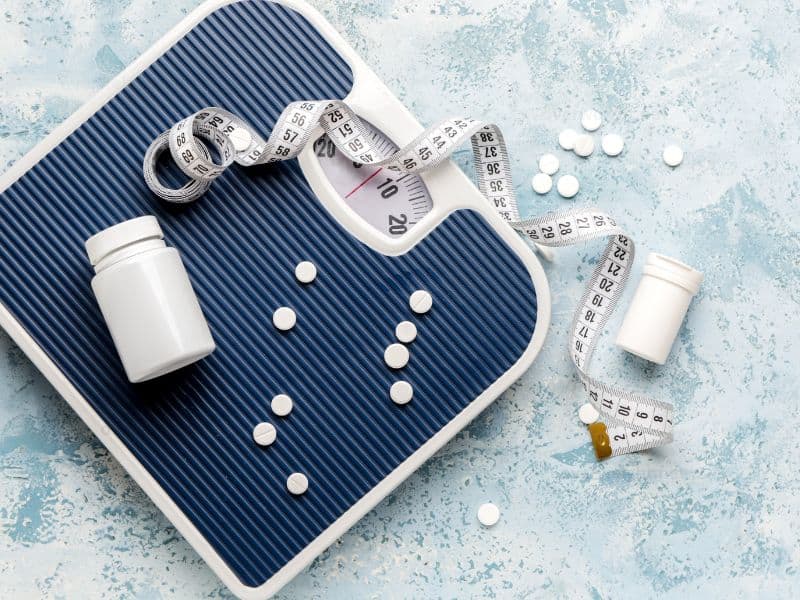
by Editor | Jun 9, 2011 | Weight Loss
What do you think of the hundreds of weight loss supplements out there on the shelves today? Are they worth the money? Will they actually help you lose weight? How do you know which ones are going to work for you? Is there any proof that these products work?…
I’ve taken some time and researched some of the most popular products to try to find the answers for you. The truth is, most products won’t help you lose anything but money. There are a few, however, with some research behind them that prove that they actually work.
What are these supplements that work? It seems that only four products hold the best promise for those of us who want to slim down. They are Conjugated Linoleic Acid (CLA), Hydroxycitic Acid (HCA), phaseolomine, and possibly 5-HTP.
1. Conjugated Linoleic Acid, CLA, has a number of research studies behind it. It is a fatty acid that has been found to reduce cancer risks, body fat and to increase lean muscle tissue. The Journal of Nutrition reported a Scandinavian Research team found CLA to increase the lean body mass of humans and also to decrease fat mass. Subjects also had lower blood fat and cholesterol after taking CLA. CLA does occur naturally in meat and dairy products, but the levels are pretty low. Also, if you’re following a healthy low-fat diet, you tend to not get as much meat and dairy, so supplementation may be the answer to getting a healthy dose of CLA.
2. Hydroxycitic Acid, HCA, is derived from a fruit, Garcinia cambogia or Malabar tamarind. It seems to work by inhibiting an enzyme that converts carbohydrates to fat. It also seems to suppress the appetite. Studies on humans have had mixed results with one study showing significant weight loss in participants. Another study using a high-fiber diet showed HCA had no effect on weight loss. Critics think the high-fiber diet prevented the absorption of the HCA. So, if you’re on a high-fiber diet, HCA may not be for you.
3. Phaseolomine is derived from the white kidney bean. It works by reducing your body’s absorption of starchy carbohydrates. Since you absorb fewer calories, you lose weight. Seems like this supplement would be great to take if you knew you were going to indulge. Research has also shown that you burn more fat while taking phaseolomine. Subjects in one study lost 10% of their body fat in 30 days. Phaseolomine is typically found in carb-blocker products.
4. 5HTP works by increasing the level of Serotonin in the brain resulting in more stable emotions, better sleep, and weight loss. I take 5HTP myself and have found it to be an excellent appetite suppressant as well as a mild mood booster. In one study where women were given either a placebo or 5HTP and a 1200-calorie diet, those who took the placebo lost 2.28 pounds, and those who took 5HTP lost 10.34 pounds. This was accomplished in 6 weeks.
Are there other supplements that work? There may be others that will stand the test of time and research, but for now, these are the best non-prescription supplements I’ve found to enhance your weight loss efforts. Good luck losing the weight you want to lose!
About the Author
Valerie de Armas,
darmas2@charter.net
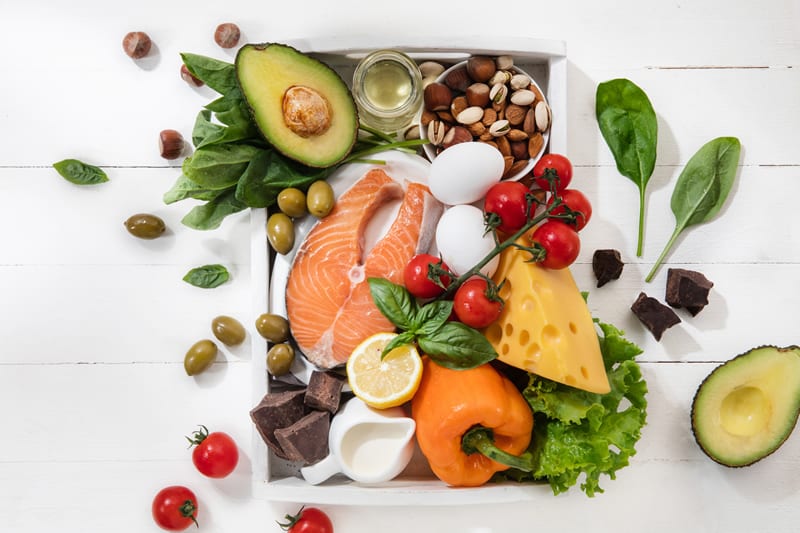
by Editor | Jun 9, 2011 | Weight Loss
For about 50 years now, Americans have been eating low fat (some no fat) diets and the funny thing is we have gotten progressively fatter and less healthy. Whoever said low-fat diets were healthy, and more importantly, why does eating less fat mean you’ll be less fat?…
In an attempt to keep this easy to understand, as most of what you read and hear is complicated, confusing, and contradictory, I’m going to be direct, to the point, and explain things in a way that most people can understand.
Where to start??? Well, I’ve done some research on this and have found very little science to back up the claims that eating less fat will keep you trim. I have also found many examples that totally dismiss this idea. For example, the French eat significantly more fat than we do here in the US while their obesity AND disease and illness rates are quite a bit lower.
Another example is the Alaskan Eskimos. They consume as much as 70% of their calories from fat (whale blubber and fish) and they have one of the lowest rates of heart disease in the world – until they come to the US and eat like us!
Before I cover other examples I’d like to talk about some of the reasons why the “low-fat diet” is not only making us fatter but also killing people faster than you can imagine!
Does that shock you? If so, do I have news for you!
Ok… here are just a few reasons:
Eating less fat means you have to eat more protein or carbs and most people end up eating more carbs (and the wrong type!) Dietary fat is very slow-burning in the body so when you replace the fat with faster burning carbs you tend to feel less energetic, risk burning muscle tissue, and wreak havoc on your metabolism and hormones because your energy levels (blood sugar) are like a roller coaster.
Dietary fats supply some of the best, and most stable sources of energy. So if you want to feel good all day long, you need to make sure you are getting enough fats and the right types. I’ll touch on which types to avoid and which to include in your diet later in this article.
The human body needs fat just to function properly, let alone optimal health Certain amounts of fat are necessary for proper hormone production. If hormone production is off so will your metabolism be? Hormones regulate many things in the body including your ability to build and maintain muscle tissue, which is responsible for a large portion of your energy expenditure. In simple terms, muscle burns calories 24 hours a day and if you eat low fat or no-fat diet you will have a hard time building and maintaining muscle.
Here are some facts:
Obesity increased from 14% of the American population in 1960 to over 22% by 1980 the Harvard Nurse’s Health Study which ran well over 10 years found that not only did low-fat diets not decrease the risk of heart disease but also that saturated fat wasn’t so bad after all, and that too little was just as harmful.
To read more of the facts about dietary fat and health check out these great resources:
https://www.healthline.com/nutrition/10-super-healthy-high-fat-foods
https://nutritionstripped.com/what-are-healthy-fats/
So to sum things up…
If you want to lose weight and be healthy – DON’T eat a low-fat diet! You would have to be absolutely insane after learning the truth about dietary fats. If you have doubts or questions please do some research and you will be amazed at what you will find out. In the meantime, go eat some healthy fats!
Article by Jesse Cannone CFT, CPRS, CSPN
Jesse Cannone is a certified personal trainer and author of the best-selling fitness ebook, Burn Fat FAST. Be sure to sign up for his free email course as it is full of powerful weight loss and fitness tips that are guaranteed to help you get the results you want.











